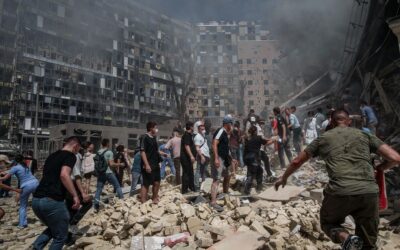
What does Pope Francis mean by Church-Communion? This can be found in four points of the Apostolic Exhortation Evangelii Gaudium (EG) in the section called No to warring among ourselves. The key phrase is found in (EG, 99): “I especially ask Christians in communities throughout the world to continue to offer a radiant and attractive witness of fraternal communion.” This request, Maria Voce says, is extended “to the Christians who find themselves in communities of the Church. It is a request for the witness they give within the various communities in which they live, “a witness of mutual love and care for one another, a witness of fraternal communion.”
But what community is the Pope talking about? Maria Voce points out that one could at first think that the Pope is referring to specific groups, but then she offered a wider view: “these communities can also be where Christians find themselves in non-Christian communities or in communities in which the Gospel is still to be proclaimed; as well as in convents, associations and families.”
Why this request? “I think he explains why in his concluding statements: “May this fraternal communion become radiant and attractive.” Beneath this witness lies a longing to evangelize, that this be the ‘primary’ form of evangelization or the ‘new’ form of evangelization. Fraternal communion among Christians must attract others simply by its witness.” Then the Pope offered some concrete expressions of this vision. “He invites us to begin. Let’s begin by praying for that person whom we don’t like at the moment. He invites us to take the first step, even just a small step; simply remembering someone in prayer. This helps to overcome all the obstacles that stand in the way of living fraternal communion . . . it makes it possible even for someone destroyed by grudges and hatreds, someone who suffers because of enmities and betrayals, to make a joyful return.” Joy is the characteristic that pervades the entire Apostolic Exhortation: “You give witness to the Gospel in joy.”
What are some of the impediments? Maria Voce refers to the preceding paragraph. The obstacle is spiritual worldliness which consists in “seeking not the Lord’s glory, but human glory and personal wellbeing” (93). Egoism: looking at yourself rather than at God and those around you; seeking security in the things of this world, in money and power, in self-reliance rather than complete trust in God.” This “prevents Christians at the very roots from enjoying fraternal communion.”
“The Pope particularly stigmatizes the contention, envy and jealousy that can arise among Christians, especially if they are in religious communities or communities of people involved in witnessing to the Gospel in some way.” Voce deduces that it is not possible to think about evangelizing in such a way: “There’s no possibility for fruitfulness, if these Christian communities don’t give an authentic witness to fraternal love.”
In conclusion, Maria Voce confided: “A thought of Chiara Lubich comes to my mind. While addressing some animators of parish communities in 2005, she stated: ‘The Lord has given us a charism for the world of today, the charism of unity. I’m certain that it can also help in the renewal of parish communities, so that they become what they are meant to be: the living Church, where everyone can find Jesus. We therefore feel the responsibility of having received such a gift from God and we have the courage to spread the spirituality of unity, especially now when John Paul II presented it to the entire Church as the spirituality of communion (NMI, 43).’” Thus it’s an invitation for us today, to “be conscious of the fact that we bear a charism and can contribute to creating bonds of fraternal communion in all the communities we belong to, both within our Movement and beyond.”
Source: Città Nuova online




0 Comments